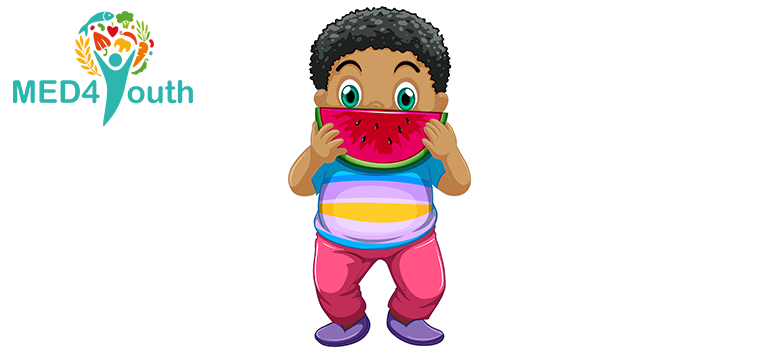
The Eurecat technology center leads the European MED4Youth project , the first nutritional intervention study where the effect of a dietary intervention based on the Mediterranean Diet is evaluated in parallel in different countries against obesity in adolescents, in order to promote and help to implement healthy habits in this segment of the population.
According to data from 2016, the World Health Organization (WHO) estimates that youth obesity has quadrupled in the last 30 years, with 18% of children and adolescents between 5 and 19 years old suffering from overweight or obesity.
In Spain, the PASOS study, published in 2019 by the Pau Gasol Foundation, concluded that 35% of children and adolescents between 8 and 16 years old are overweight or obese, a similar percentage to that of other neighboring countries such as Italy and Portugal.
“The appearance of obesity is very frequently associated with an unhealthy diet and a sedentary lifestyle, therefore, it is important to promote healthy habits in adolescents, since youth obesity is a strong predictor of obesity in adulthood, which can lead to the premature onset of hypertension and metabolic alterations, such as high levels of cholesterol, triglycerides and sugar, which increase the risk of suffering non-communicable diseases such as cardiovascular diseases or diabetes, among others ”, highlighted the main researcher of the project , Antoni Caimari, director of the Eurecat Biotechnology Area.
The Mediterranean Diet meets the characteristics of a healthy and sustainable eating and lifestyle pattern. However, "no clinical and nutritional intervention study has been carried out in adolescents with obesity in different European countries in which the health effects of a Mediterranean Diet have been evaluated", added Montserrat Rabassa, researcher and dietician-nutritionist of the Nutrition and Health Unit of Eurecat.
The MED4Youth project "is conceived to address this need and demonstrate that a Mediterranean Diet is effective in combating youth obesity and promoting a healthier lifestyle", Rabassa specified.
In this scenario, the study, which is carried out among Catalan, Italian and Portuguese adolescents aged 13 to 17 who are overweight and obese, proposes the introduction of foods typical of the Mediterranean Diet.
This dietary intervention is combined with technology and the use of gamification, through the use of an educational app adapted to adolescents and their parents, seeking to achieve content on nutrition and health and, thus, teach adolescents to eat better and to implement good habits that are sustained over time, improving their health and quality of life.
Within the framework of the research, omic technologies will be used that "will allow us to know in greater depth how the Mediterranean Diet exerts its healthy effects on the body, based on the analysis of bacterial populations and metabolites present in the intestine", has remarked the Director of the Eurecat Biotechnology Area.
Volunteer teens are monitored by nutrition and health experts to help them follow established nutritional guidelines. In addition, together with their legal guardians, they receive online support throughout the study through a web application, which will provide recipes and healthy tips to motivate them to acquire a healthy weight and habits.
The MED4Youth project consortium, coordinated by the Eurecat technology center, also has the participation of the University of Parma (Italy), which is leading the study in Italy, the University of Coimbra (Portugal), which is leading it in Portugal, Shikma Field Crops (Israel), Scientific Food Center (Jordan) and Panishop-Novapan (Spain). The project also has the collaboration of the Cooperativa Agrícola de la Selva del Camp (COSELVA), which will supply the nuts to the participants.
Source: Mercacei